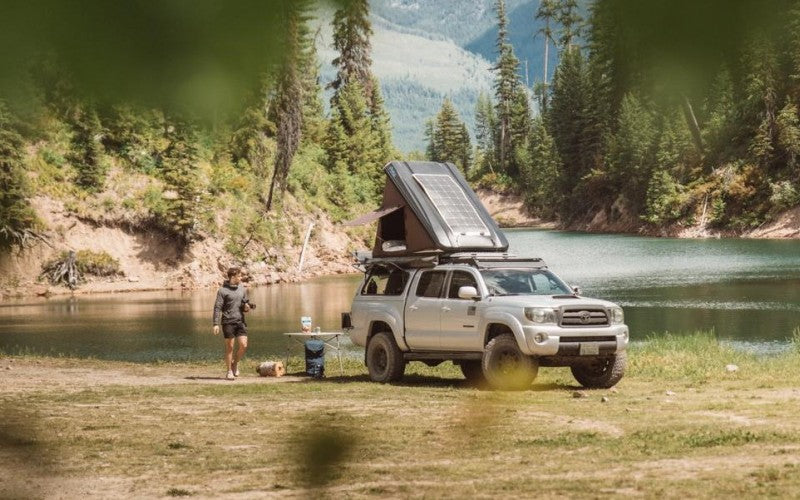
If you're an avid traveler or a proud owner of an RV, you know the importance of having a reliable power source on the road. One of the most critical components of any RV setup is the battery. Whether you rely on your battery for lighting, running appliances, or even powering your solar energy system, understanding how cold weather affects your RV battery is crucial. In this blog post, we'll dive into the fascinating world of battery chemistry and explore why your battery may die in cold weather. Additionally, we'll provide you with valuable tips on how to keep your lithium-ion batteries warm and functioning optimally, even in freezing temperatures.
How Does Cold Weather Affect Lithium-Ion Batteries?
Lithium-ion batteries, the go-to choice for many RV enthusiasts due to their high energy density and long lifespan, are not impervious to the effects of cold weather. When temperatures drop, several chemical reactions take place within the battery that can hinder its performance or even cause irreversible damage.
Understanding the Chemical Reactions in Cold Temperatures
In cold weather, the chemical reactions inside a lithium-ion battery slow down significantly. This reduced reaction rate affects the movement of ions between the battery's positive and negative electrodes, leading to a decrease in its overall capacity. In simpler terms, cold weather makes it more challenging for your battery to hold a charge and deliver the power you need.
Can Lithium Batteries Freeze?
One common concern among RV owners is whether lithium batteries can freeze in extremely cold temperatures. Unlike traditional lead-acid batteries that are susceptible to freezing, lithium batteries have a lower freezing point, typically around -40°C (-40°F). Therefore, under normal winter conditions, the risk of your lithium battery freezing is minimal. However, it's essential to protect your battery from extended exposure to extremely low temperatures to avoid any potential damage.
What Temperature Is Bad for Lithium Batteries?
While lithium batteries won't freeze easily, exposing them to extremely low temperatures can have adverse effects on their performance and longevity. Generally, lithium-ion batteries should not be operated or stored below -20°C (-4°F). Temperatures below this threshold can cause irreversible damage to the battery, reducing its overall capacity and potentially shortening its lifespan.
How to Keep Lithium Batteries Warm in Cold Weather (5 Great Ways)
1. Insulate the Battery Compartment: One of the simplest and most effective ways to keep your lithium battery warm in cold weather is to insulate the battery compartment. By adding insulation material around the battery, you can create a barrier that helps retain heat generated by the battery itself and prevent it from dissipating into the cold surroundings.
2. Preheat the Battery: If you know you'll be facing freezing temperatures, consider preheating your lithium battery before use. Some RVs come equipped with battery preheating systems, but if yours doesn't have one, you can use an external heating pad designed specifically for batteries. These pads are easy to use and provide sufficient warmth to ensure your battery operates optimally.
3. Use Battery Heating Wraps: Battery heating wraps are another excellent option for keeping your lithium battery warm in cold weather. These wraps are designed to fit snugly around the battery, providing a consistent and regulated heat supply. They are typically equipped with a thermostat to maintain the ideal temperature for your battery.
4. Optimize Charging Practices: When charging your battery in cold weather, it's essential to follow the manufacturer's recommendations. Some lithium batteries may require a slightly higher charging voltage in colder temperatures to compensate for the reduced capacity. Ensure your RV's charging system is compatible with your battery and adjust the settings accordingly.
5. Keep Your Battery Connected: If your RV is equipped with a solar energy system, keeping your lithium battery connected to the solar panels can help maintain its temperature. Solar panels generate heat when exposed to sunlight, and this heat can transfer to the battery, helping to keep it warm. Additionally, keeping your battery connected to the solar panels ensures a constant charge, minimizing the time it spends idle and exposed to the cold.
In conclusion, understanding how cold weather affects your RV battery is essential for maintaining its optimal performance and longevity. While lithium-ion batteries have a lower risk of freezing compared to traditional lead-acid batteries, they still experience reduced capacity and potential damage in extremely low temperatures. By insulating the battery compartment, preheating the battery, using battery heating wraps, optimizing charging practices, and keeping your battery connected to solar panels, you can ensure your lithium battery stays warm and functional, even in freezing conditions.
When it comes to purchasing solar energy-related products for your RV, it's crucial to consider the specific needs of your battery in cold weather. Look for products that offer insulation or heating features designed to keep your battery warm and protected. Additionally, consult with experts or manufacturers who can provide guidance on the compatibility of your battery with the solar energy system you intend to purchase.
Remember, a well-maintained battery is the key to a successful and enjoyable RV journey, no matter the weather conditions. By taking the necessary precautions and implementing the suggested tips, you can rest assured that your RV battery will continue to power your adventures, even in the coldest of temperatures. Stay warm and keep exploring!

0 comments